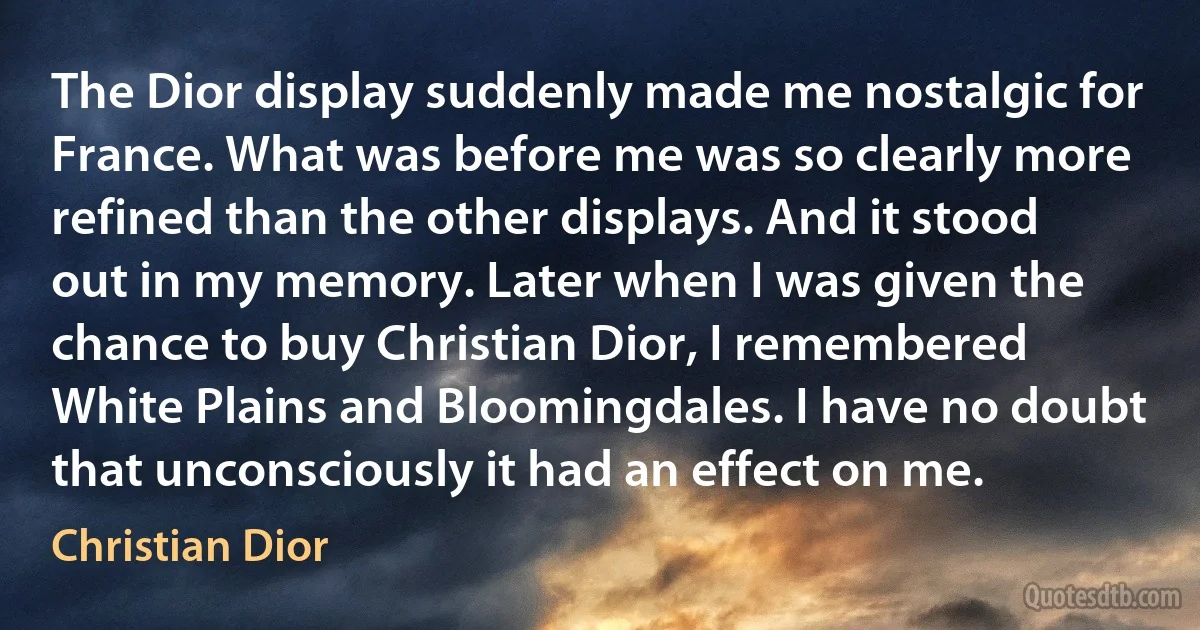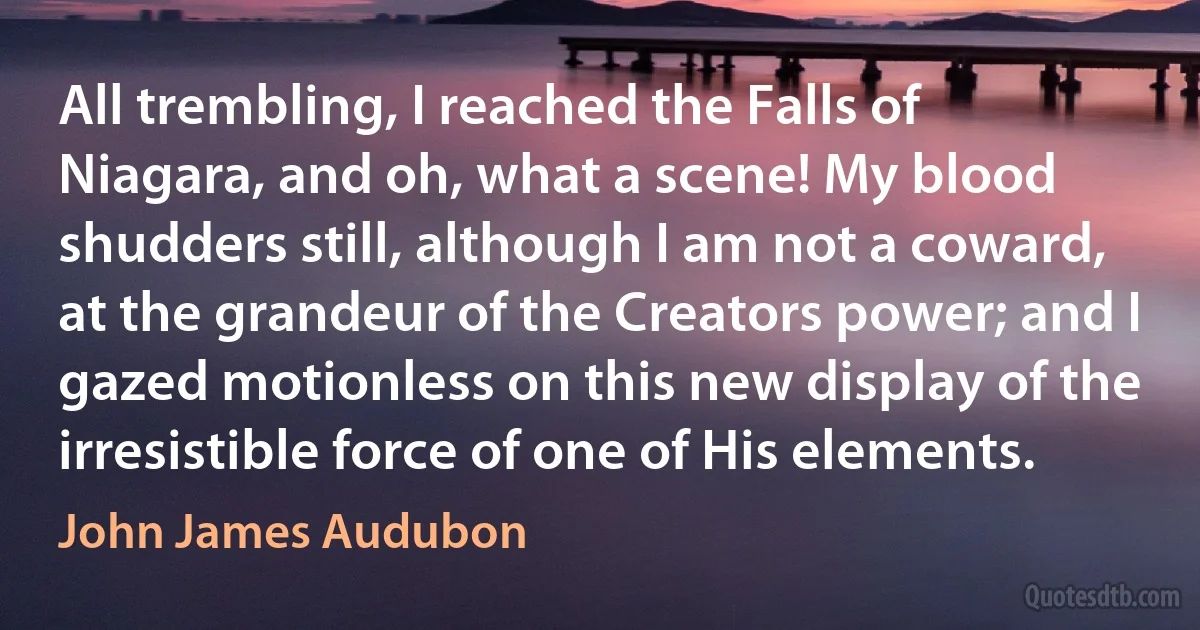Display Quotes - page 4
The events of these last few days constitute one of the greatest diplomatic defeats that this country and France have ever sustained. There can be no doubt that it is a tremendous victory for Herr Hitler. Without firing a shot, by the mere display of military force, he has achieved a dominating position in Europe which Germany failed to win after four years of war. He has overturned the balance of power in Europe. He has destroyed the last fortress of democracy in Eastern Europe which stood in the way of his ambition.

Clement Attlee
We mortals sometimes cut a pitiable figure in our attempts at display. We may be sure of our own merits, yet fatally ignorant of the point of view from which we are regarded by our neighbour. Our fine patterns in tattooing may be far from throwing him into a swoon of admiration, though we turn ourselves all round to show them.

George Eliot
The outlook had become still more threatening since the Pact of Munich. So far from that notorious surrender purchasing appeasement, it had encouraged the dictators to a greater display of insolence. ... Three years ago we discovered that our armaments in essentials for our defence had fallen far behind those of Germany, Italy, and Japan. It was a piece of criminal negligence. ... During the past two years the dictators had, through our lack of foresight, through the gross stupidity of our national leaders, cleverly but relentlessly succeeded in placing the British Empire and France in the most dangerous strategical position which they had ever been situated.

David Lloyd George
.. Is it indisputable that several aesthetic declarations of our French comrades (the Cubists) display a sort of masked academicism. It is not, indeed, a return to the Academy to declare that the subject, in painting, has a perfectly insignificant value?... To paint from the posing model as an absurdity, and an act of mental cowardice, even if the model be translated upon the picture in linear, spherical and cubic forms..

Umberto Boccioni
The relationship of volumes, lines, and colors demands absolute orchestration and order. These values are all unquestionable influential; they have extended into modern objects such as airplanes, automobiles, farm machines, etc. Today we are in competition with the 'beautiful object'; it is undeniable. Sometimes its plastic qualities make it beautiful in itself and consequently unusable; one can only fold one's arms and admire it. There is also today an astonishing art of window display. Certain store windows are highly organized spectacles... If, pushing things to extremes, the majority of manufactured objects and 'stored spectacles' were beautiful and had plasticity, we artists would no longer have any reason to exist.

Fernand Léger
And be all plunderers curst.
'The best way to hate is the worst.
'Tis to find what the hated need,
Never mind of what actual worth,
And wipe that out of the earth.
Let them die of unsatisfied greed,
Of unsatisfied love of display,
Of unsatisfied love of the high,
Unvulgar, unsoiled, and ideal.
Let their trappings be taken away.
Let them suffer starvation and die
Of being brought down to the real.

Robert Frost
[N]early every political evil can be found on display in China: slavery, discrimination, religious persecution, xenophobia, tyranny, mass-political indoctrination, colonialism, cultural genocide, and so on. And yet, the outcry against these things in America and the West is a tiny fraction of what it was with regard to South Africa in the 1980s or Israel today. Why? Some of the political answers are pretty obvious - and have much merit. A few that come to mind: China is non-Western, and many of these sins are supposed to be unique to white Europeans; China is a victim (or "victim”) of colonialism, and so we shouldn't judge it harshly; China is very powerful, and realpolitik dictates that we be diplomatic; and so on.

Jonah Goldberg
I believe there is no permanent greatness to a nation except it be based upon morality. I do not care for military greatness or military renown. I care for the condition of the people among whom I live. There is no man in England who is less likely to speak irreverently of the Crown and Monarchy of England than I am; but crowns, coronets, mitres, military display, the pomp of war, wide colonies, and a huge Empire, are, in my view, all trifles light as air, and not worth considering, unless with them you can have a fair share of comfort, contentment, and happiness among the great body of the people. Palaces, baronial castles, great halls, stately mansions, do not make a nation. The nation in every country dwells in the cottage; and unless the light of your constitution can shine there, unless the beauty of your legislation and the excellence of your statesmanship are impressed there on the feelings and condition of the people, rely upon it you have yet to learn the duties of Government.

John Bright
The Islamic claim to the Temple Mount in Jerusalem is even more transparently fraudulent... Any secularist willing to uphold this claim as historical? Or otherwise ready to show the courage of his conviction and demand that the Muslims relinquish their claim to the Temple Mount so as to be morally in a poistion to demand a similar abandonment of "mythical" claims from the Hindus?... In the case of Christians and Muslims, no one demands that they prove the historicity of the stories underlying the sacred status of their places of pilgrimage. Demanding the same of Hindus is an insulting display of double standards.

Koenraad Elst
It was about eleven o'clock in the morning, mid October, with the sun not shining and a look of hard wet rain in the clearness of the foothills. I was wearing my powder-blue suit, with dark blue shirt, tie and display handkerchief, black brogues, black wool socks with dark little clocks on them. I was neat, clean, shaved and sober, and I didn't care who knew it. I was everything the well-dressed private detective ought to be. I was calling on four million dollars.

Raymond Chandler
In general, any methods of discipline applied to the body which tend to modify its desires or repulsions, are good-for ascetic ends. But if done for display, they betray at once a man who keeps an eye on outward show; who has an ulterior purpose, and is looking for spectators to shout, "Oh what a great man!" This is why Apollonius so well said: "If you are bent upon a little private discipline, wait till you are choking with heat one day-then take a mouthful of cold water, and spit it out again, and tell no man!"

Epictetus
If a society insists that warfare is the major occupation for the male sex, it is therefore insisting that all male children display bravery and pugnacity. Even if the insistence upon the differential bravery of men and women is not made articulate, the difference in occupation makes this point implicitly. When, however, a society goes further and defines men as brave and women as timorous, when men are forbidden to show fear and women are indulged in the most flagrant display of fear, a more explicit element enters in. Originally two variations of human temperament, a hatred of fear or willingness to display fear, they have been socially translated into inalienable aspects of the personalities of the two sexes. And to that defined sex-personality every child will be educated, if a boy, to suppress fear, if a girl, to show it.

Margaret Mead
I have long recognized the theory and aesthetic of such comprehensive display: show everything and incite wonder by sheer variety. But I had never realized how powerfully the decor of a cabinet museum can promote this goal until I saw the Dublin [Natural History Museum] fixtures redone right. [...] The exuberance is all of one piece-organic and architectural. I write this essay to offer my warmest congratulations to the Dublin Museum for choosing preservation-a decision not only scientifically right, but also ethically sound and decidedly courageous. The avant-garde is not an exclusive locus of courage; a principled stand within a reconstituted rear unit may call down just as much ridicule and demand equal fortitude. Crowds do not always rush off in admirable or defendable directions.

Stephen Jay Gould



